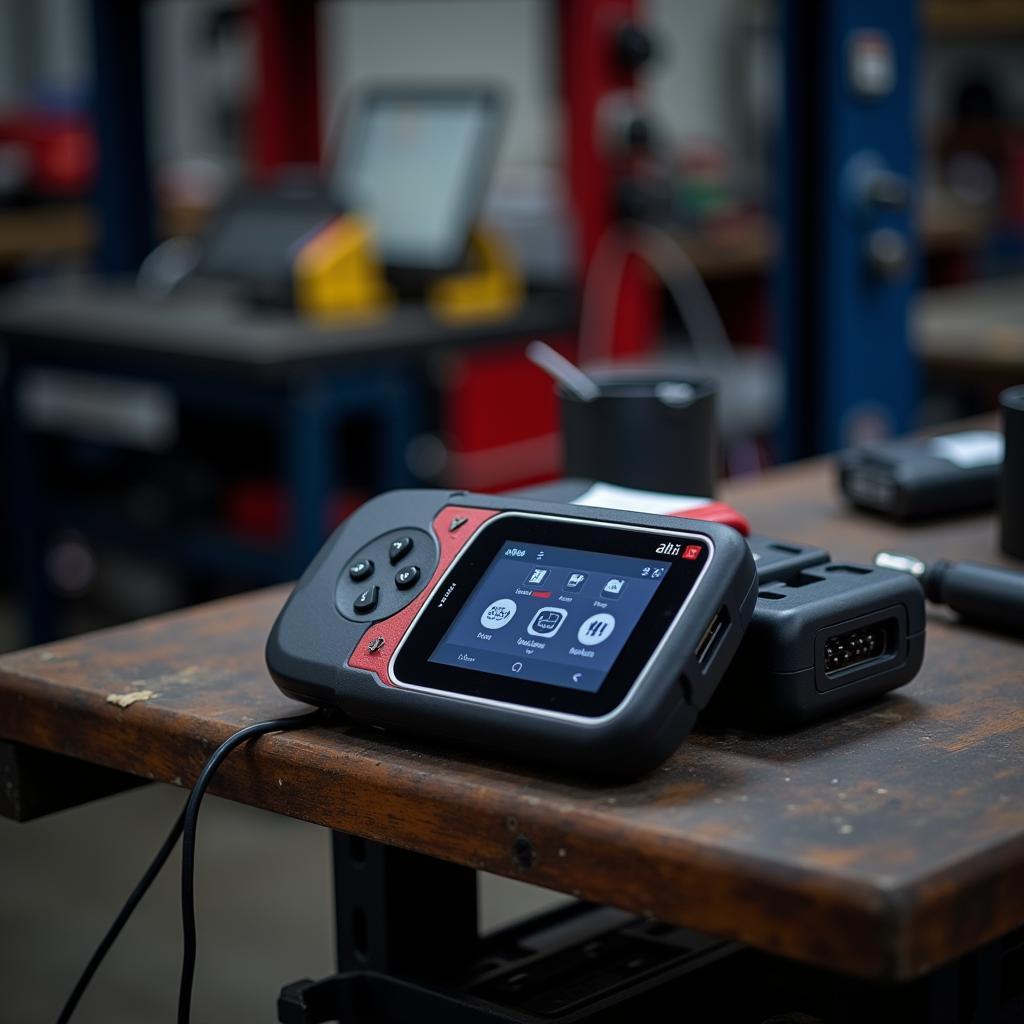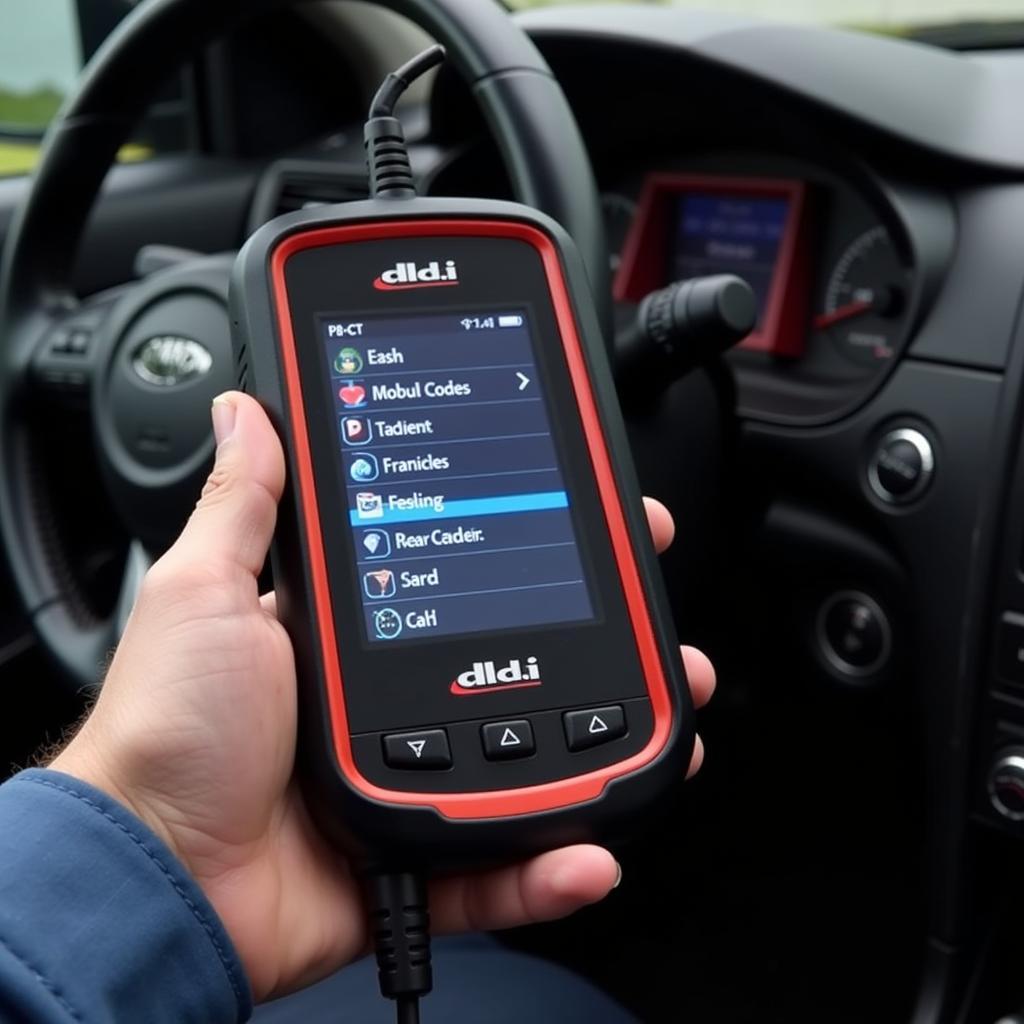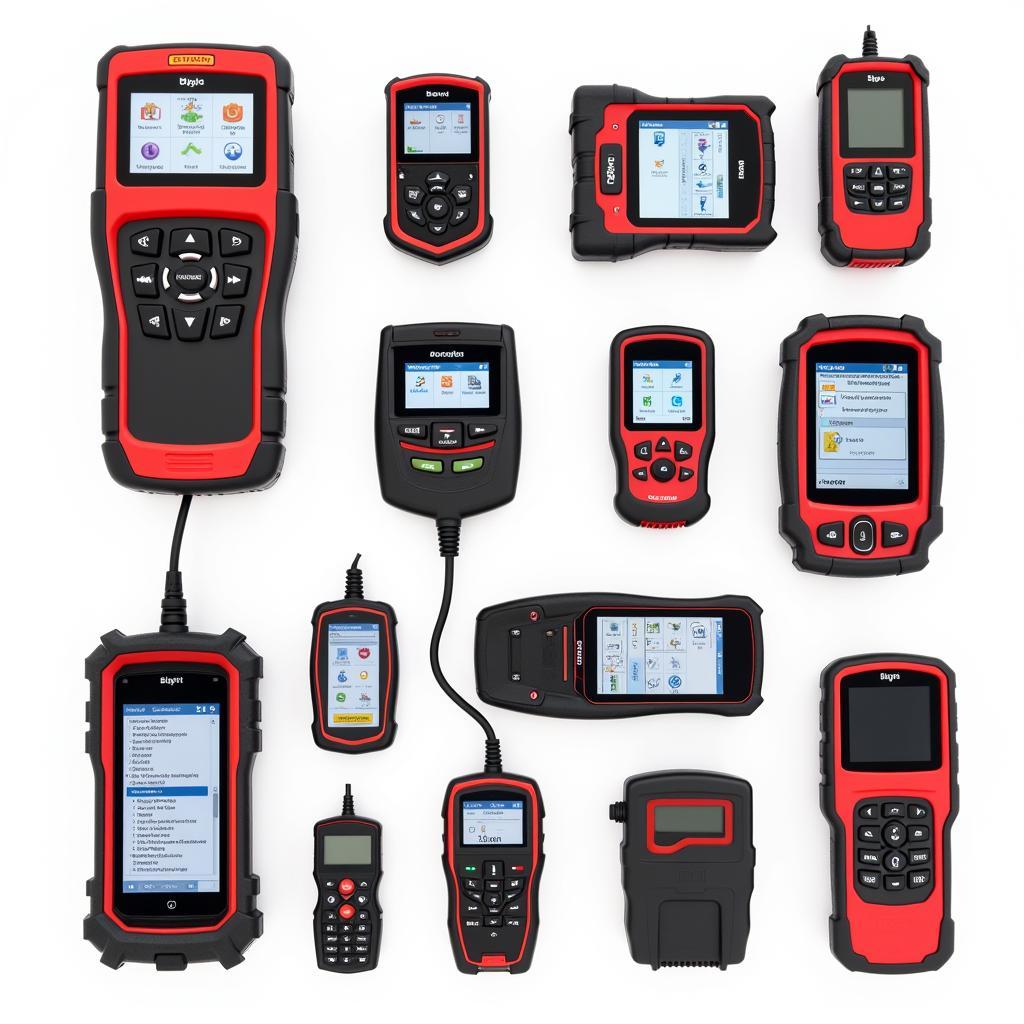Aldi Car Diagnostic tools have become increasingly popular among car owners looking for affordable ways to troubleshoot their vehicles. But how do these budget-friendly options stack up against professional-grade equipment? This article delves into the world of Aldi car diagnostics, exploring their features, benefits, limitations, and whether they’re the right choice for you.
Understanding the Hype Around Aldi Car Diagnostics
 Aldi car diagnostic tool on a workbench
Aldi car diagnostic tool on a workbench
Aldi, known for its discounted groceries, periodically offers car diagnostic tools as part of its “Special Buys” promotions. These tools often come with attractive price tags, making them tempting for DIY enthusiasts looking to save some money. But before you rush to your nearest Aldi, it’s essential to understand what these devices can and cannot do.
What Can an Aldi Car Diagnostic Tool Do?
Aldi car diagnostic tools are generally code readers, which means they can read and display diagnostic trouble codes (DTCs) stored in your car’s computer. These codes provide clues about potential issues within your vehicle’s systems.
Here are some common functions of Aldi car diagnostic tools:
- Read and clear DTCs: Identify and clear engine-related error codes, such as those related to emissions, sensors, or misfires.
- View live data stream: Monitor real-time sensor data, like engine speed, coolant temperature, and oxygen sensor readings.
- Check emissions readiness: Determine if your car is ready for an emissions test.
Are Aldi Car Diagnostics Right for You?
 Using an Aldi car diagnostic tool
Using an Aldi car diagnostic tool
Aldi car diagnostics can be a good starting point for DIY car maintenance, especially for basic tasks like reading and clearing engine codes. They’re budget-friendly and user-friendly, making them accessible to beginners.
However, it’s important to remember that these tools have limitations. They may not be compatible with all car makes and models, and their functionality might be limited compared to professional-grade scanners.
Here’s a quick breakdown:
Pros:
- Affordability: Significantly cheaper than professional-grade tools.
- Ease of use: Generally user-friendly, even for beginners.
- Basic functionality: Sufficient for reading and clearing basic engine codes.
Cons:
- Limited compatibility: May not work with all car makes and models, especially older vehicles.
- Limited features: Often lack advanced functions like bi-directional control or coding.
- Basic software: May not provide detailed code definitions or troubleshooting information.
Beyond Aldi: Exploring Other Car Diagnostic Options
 Variety of car diagnostic tools
Variety of car diagnostic tools
If you’re serious about car diagnostics, consider investing in a more advanced scan tool. These tools offer a wider range of features, including:
- Bi-directional control: Allows you to interact with vehicle systems, such as activating actuators or running tests.
- Advanced coding and programming: Enables customization and software updates for specific modules.
- Comprehensive software: Provides detailed code definitions, troubleshooting guides, and technical information.
While these tools come at a higher price point, they offer greater functionality and versatility, making them a worthwhile investment for DIY enthusiasts and small workshops.
Conclusion
Aldi car diagnostics can be a cost-effective solution for basic car troubleshooting, offering an entry point into the world of DIY car maintenance. However, it’s crucial to understand their limitations and consider whether their functionality aligns with your needs. For more advanced diagnostics, exploring other options might be necessary. Regardless of your choice, having a reliable car diagnostic tool empowers you to take control of your vehicle’s health and potentially save on costly repair bills.

Leave a Reply